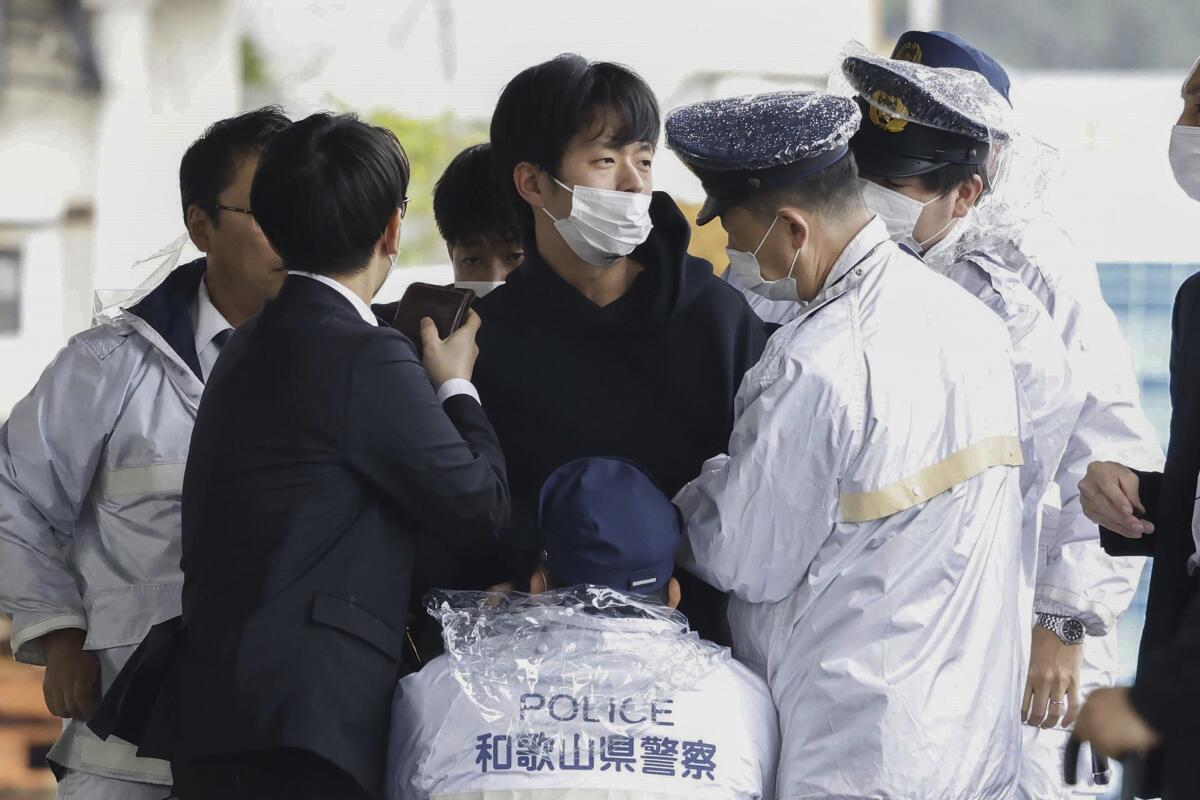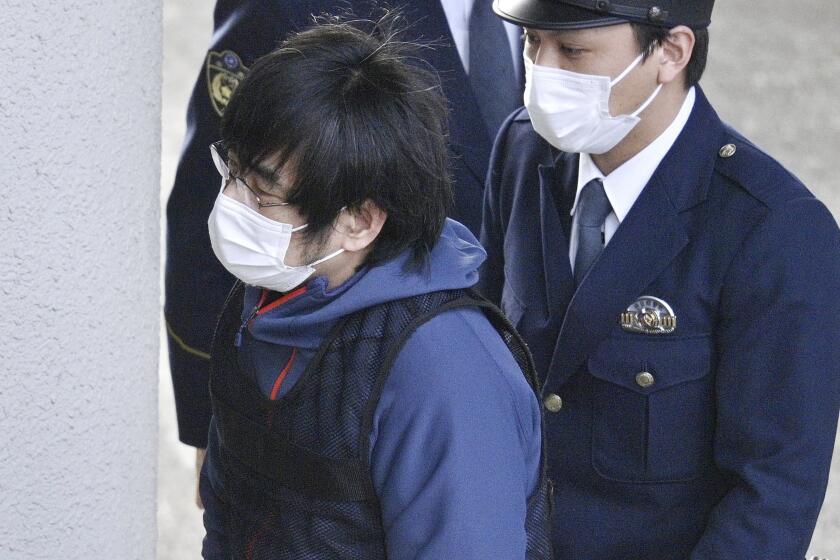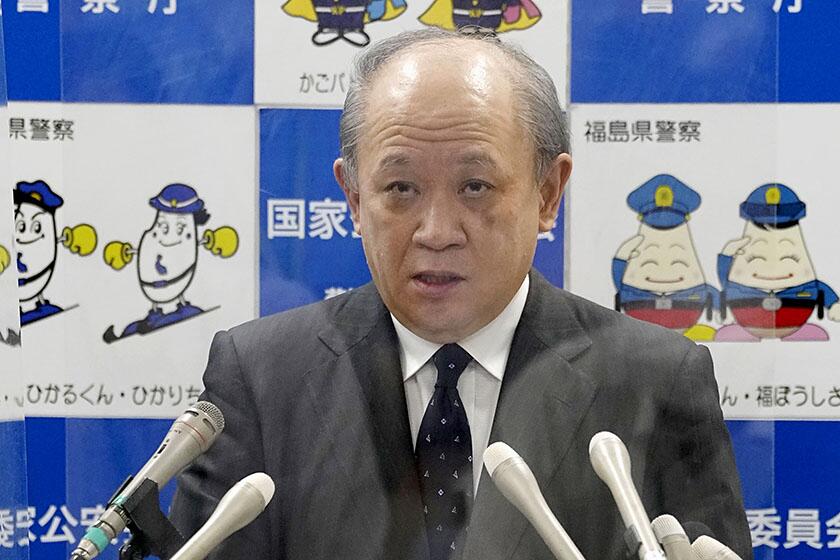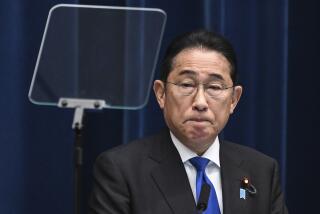Suspect in bomb attack on Japanese premier may have had political aspirations

TOKYO — An unemployed 24-year-old man who allegedly threw a pipe bomb at Japanese Prime Minister Fumio Kishida wanted to be a politician and believed that he was unfairly blocked from running for parliament by an age requirement, according to media reports and social media posts that appeared to be his.
The suspect, Ryuji Kimura, was wrestled to the ground and arrested Saturday at a campaign event in the fishing port of Saikazaki, in the western Japanese city of Wakayama. The explosive, believed to be a pipe bomb, landed near Kishida, who escaped unhurt.
Kimura has refused to talk to police, but reports that he became angry after failing to register for an election and had sued the government might shed light on his motives.
Last June, he filed a lawsuit with the Kobe District Court claiming that he should have been allowed to register for the July 2022 election for Japan’s upper house. A candidate must be 30 or older and present a 3-million yen ($22,260) deposit to run for the upper house, the less powerful of Japan’s bicameral parliament. Kimura was 23 at the time.
He demanded that the government pay 100,000 yen ($740) in compensation for his psychological anguish, according to Japanese media reports, including NHK public television and Kyodo News.
Violent crimes are rare in Japan. With its strict gun-control laws, the country has only a handful of gun-related crimes annually, most of them gang-related. But in recent years Japanese police have worried about “lone wolf” attacks with homemade guns and explosives. Former Prime Minister Shinzo Abe was assassinated with a homemade gun at a campaign event July 8, 2022, just two days before the upper house election.
Japanese prosecutors say results of a mental evaluation show Tetsuya Yamagami is fit to stand trial in the slaying of former leader Shinzo Abe.
In a document he submitted to the court, Kimura, who was reportedly unemployed, argued that the electoral system that blocked his candidacy was unconstitutional, the news reports said.
Kimura contended that the election law violates constitutional guarantees of equality and other rights, according to media reports. The court dismissed his claim in a November ruling, and Kimura appealed the decision to the Osaka High Court, whose decision is expected in May, reports say.
Tweets posted to an account cited by local media as his and seen by the Associated Press describe court proceedings matching those reported from his case, and complain about Japan’s political dynasties. The account had only 23 posts since it began late June.
An Aug. 11 tweet said the deck was stacked against ordinary people who quit their jobs and paid the deposit to run in national elections. “Your rivals are religious groups who vote in blocs and incumbent politicians who enjoy free election volunteers. There is an established system where ordinary people can never become politicians.”
Police Chief Itaru Nakamura says he takes responsibility for the security lapses that allowed a gunman to shoot former Prime Minister Shinzo Abe.
An Aug. 12 tweet criticized “the imposition of mourning for a dictator who was elected in a discriminatory election that requires age limits and deposits,” apparently criticizing Kishida’s decision to hold a state funeral for Abe, whose leadership was often criticized as high-handed and autocratic. “The level of democracy in Japan is comparable to North Korea and China.”
Abe’s alleged assassin, Tetsuya Yamagami, who has been charged with murder and several other crimes, told authorities soon after his arrest that he killed Abe because of the former prime minister’s apparent links to a religious group that Yamagami hated. In statements and in social media posts attributed to him, Yamagami said his mother’s donations to the Unification Church bankrupted his family and ruined his life.
More to Read
Sign up for Essential California
The most important California stories and recommendations in your inbox every morning.
You may occasionally receive promotional content from the Los Angeles Times.











